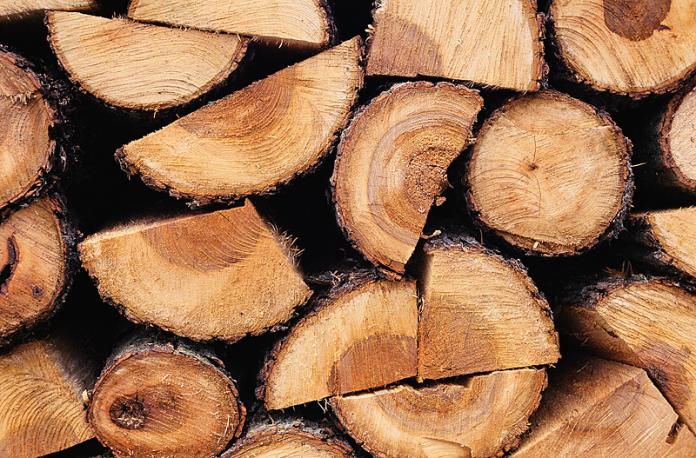To be able to discover the fitting type of wood for each development mission, builders consult with the power of wooden. Completely different woods, labeled into hardwoods and softwoods, are good for various kinds of initiatives.
Wooden power isn’t given in a single measurement. It’s expressed utilizing a lot of measures, akin to its density (the burden per a given quantity); its compressive power (or how nice a weight a load of wooden can bear parallel to the grain earlier than it ruptures); its bending power (a load of wooden perpendicular to the grain); and its hardness.
The power of wooden fiber could be very constant throughout all tree species, and the power of the wooden relies on what number of fibers are packed right into a given space. Due to this reality, a wooden’s density correlates very intently to its power and hardness. In different phrases, if a wooden’s comparative density, you will get a very good approximation of its hardness and power.
You may also use a wooden’s hardness to find out its relative power in comparison with different woods. Hardness is an particularly helpful measure of a wooden’s suitability for flooring.
A wooden’s power isn’t static, nonetheless. It varies with the course of the wooden grain. Skilled builder and craftsman Jordan Smith explains:
“Wooden is an anisotropic materials, which means that it’s stronger in sure instructions than in others. And it’s the strongest with the grain.”
HOW IS WOOD HARDNESS MEASURED?
Hardness is the measure of wooden’s means to withstand denting and scratching. The lumber trade charges a wooden’s hardness utilizing the Janka hardness scale, which measures what number of kilos of power (lbf) it takes to drive a 0.444-inch metal ball midway into the wooden’s face grain. The extra power it takes to drive the ball into the wooden, the tougher the wooden, and the upper the Janka ranking. Widespread purple oak has a Janka hardness of 1220 lbf, which means it takes 1220 kilos of power to drive the metal ball midway into the wooden. For reference, gentle balsa wooden requires solely 67 lbf and the toughest wooden on the earth, Australian Buloke, has a Janka hardness of 5060 lbf.
TOP 5 HARDEST WOODS IN THE WORLD
The next 5 hardwoods are ranked the very best on the earth on the Janka Scale.
- Australian Buloke: That is an ironwood tree that’s native to Australia, with a Janka hardness of 5,060 lbf.
- Schinopsis brasiliensis: A species of flowering plant within the cashew household, this tree originates in Brazil and ranks #2 with a toughness of 4,800 lbf.
- Schinopsis balansae: This tree (4,570 lbf) makes up giant areas of forest in Argentina and Paraguay and might develop to just about 80 ft excessive. It’s generally utilized in house and constructing development.
- Lignum vitae: This Caribbean and South American hardwood is known for its mixture of power, density and toughness, and has a Janka hardness of 4,500 lbf. It has lengthy been utilized in purposes that require excessive sturdiness, like ship development. It additionally has pure properties like water resistance, since it’s infused with a wax-like resin.
- Piptadenia macrocarpa: Areas in Argentina, Bolivia, and Peru develop this hardwood, which has a Janka hardness ranking of three,840 lbf.
COMMON WOODS AND THEIR HARDNESS
Whereas the above hardwoods are ranked the toughest on the Janka scale, they may not be essentially the most acquainted. For perspective, listed here are among the hardest commercially obtainable hardwoods:
- Hickory: As a result of hickory could be a reasonable constructing possibility and is harvested from home timber, builders use it in several sorts of constructing initiatives, together with house development. It has a hardness ranking of 1820.
- Ash: Sturdy however not as heavy as another hardwoods, ash is ready to take in shock with out splintering, which makes it a very good wooden for sporting gear. It has a hardness ranking of 1320.
- Oak: Oak remains to be rated onerous, despite the fact that it ranks decrease than another hardwoods (1290). As a result of it’s available in North America and a lower-cost possibility than another hardwood choices, it’s a preferred alternative for constructing.
- Cherry: With a “very onerous” (950) Janka ranking, cherry has a purple undertone that makes it nice for ornamental items. Due to its price, it’s used for particular items akin to cabinetry and furnishings.
Simply because a wooden is assessed as a hardwood (which means that the tree produces seeds which have a coating within the type of a fruit or a shell) doesn’t imply the wooden is essentially onerous. In truth, the three softest woods in keeping with the Janka ranking system are technically hardwood species. Balsa, a deciduous angiosperm, is assessed as a hardwood, and is the softest industrial hardwood obtainable.




